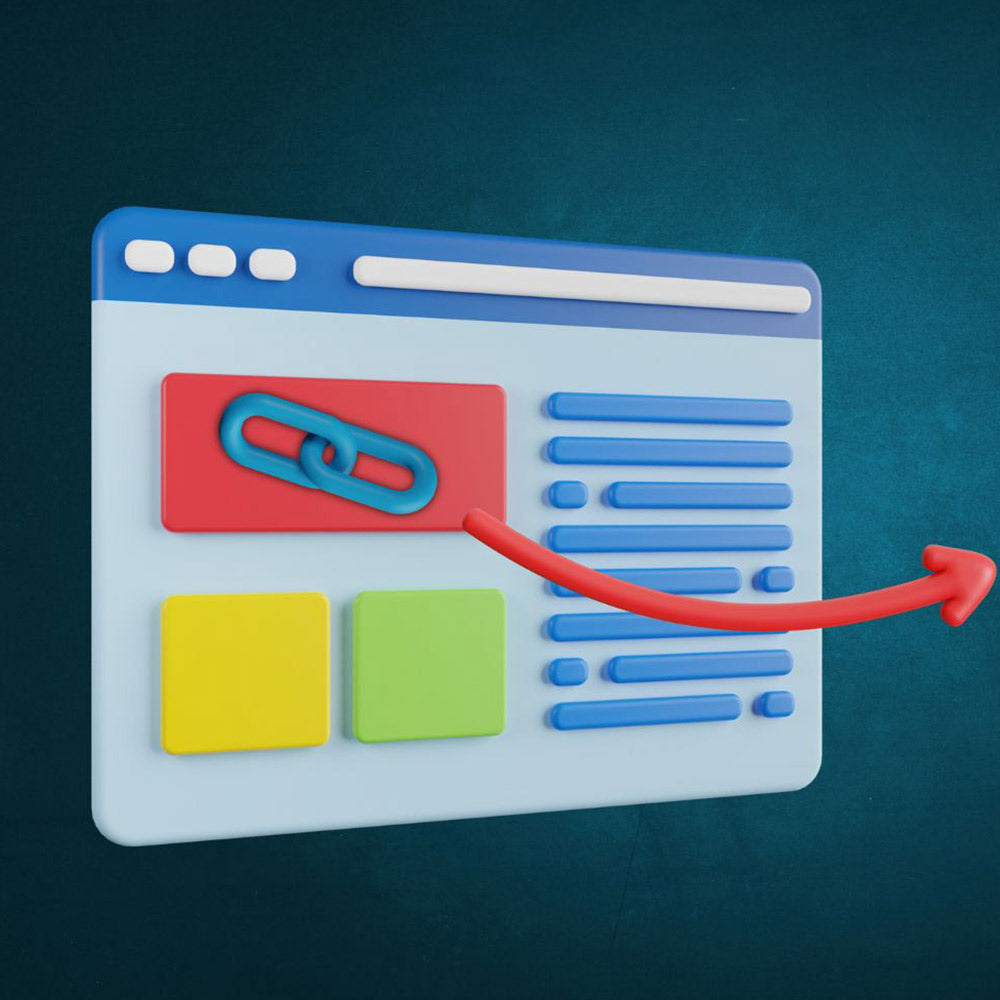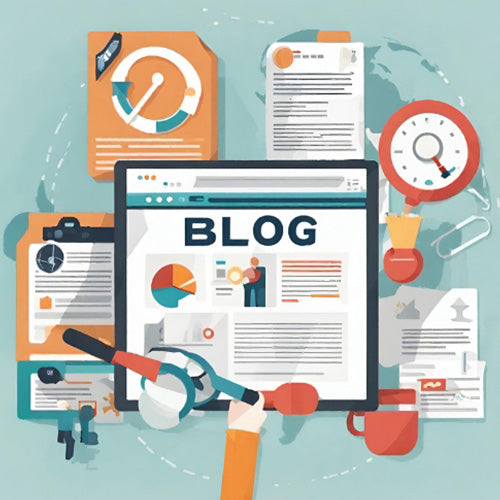Discover 10 or more AI tools that you can leverage to improve your business. Before reading on, I would like to take a moment to share how using AI can be useful however it is just a tool and is not capable of doing everything. AI cannot substitute real human work and doesn't always get it right!
1. Email Campaigns (Klaviyo or Mailchimp)
Klaviyo and Mailchimp are popular email marketing platforms, each catering to distinct business needs. Klaviyo stands out for its strong emphasis on e-commerce, offering seamless integration with customer data for personalized campaigns, advanced automation features, and powerful segmentation capabilities.
On the other hand, Mailchimp is known for its versatility, serving businesses of all sizes with user-friendly interfaces, a range of marketing tools beyond email, automation features, and accessible templates. While Klaviyo is often preferred for its robust e-commerce focus, Mailchimp's broader appeal and ease of use make it suitable for many businesses, particularly those starting with email marketing. The choice between the two depends on specific business requirements, desired automation levels, and integration preferences.
2. Blog Posts (Chatsonic & ChatGPT)
ChatSonic and ChatGPT serve as potent tools for blog post content creation. ChatSonic excels in fostering a conversational writing style, enabling real-time interactions with users, and aiding in ideation. It adds an engaging and interactive dimension to blog content creation. On the other hand, ChatGPT, with its versatile language proficiency and research capabilities, ensures the generation of well-structured and contextually relevant blog posts. Combining both tools allows for a comprehensive approach, starting with ChatGPT to structure content and gather information and utilizing ChatSonic to enhance engagement and tailor content based on user feedback. Together, they offer a dynamic and efficient solution for bloggers seeking to produce high-quality, user-centric blog posts.
3. Generate AI images with Microsoft designer
The Microsoft Designer tool, encompassing the Text to Image Generator feature (Image Generator) and the brand kit feature (Brand Kit), allows users to create images (Creations) based on input text prompts. Pitfalls are that the text generation is not accurate yet and often produces words that dont make sense or mean anything. Also you do not technically own any images that are produced from it as they are usually created from a mix of various elements found online.
4. Adobe photoshop for enhancing images
Adobe Photoshop is a powerful tool for enhancing images and designs, offering a range of features that allow users to transform and improve visuals. With its advanced capabilities, Photoshop enables users to expand images and automatically replace undesired parts. This functionality provides a convenient and efficient way to refine designs by seamlessly altering specific elements. Whether it's adjusting proportions, eliminating imperfections, or enhancing overall aesthetics, Adobe Photoshop stands as a go-to solution for image editing, offering creative flexibility and precision for users seeking to enhance and perfect their visual content.
5. Shopify AI for product descriptions
Shopify AI, developed by the renowned e-commerce platform Shopify, is an artificial intelligence-powered tool designed to revolutionize product descriptions for online sellers. By employing advanced natural language processing algorithms, it automatically generates engaging and informative descriptions by analyzing product data, considering features, benefits, and customer preferences. The benefits of using Shopify AI include significant time savings, consistency in brand identity, SEO optimization, and increased conversion rates through persuasive content.
Integration into a Shopify store is straightforward, requiring the provision of product data for AI analysis and subsequent customization. While Shopify AI streamlines the description-writing process, it's crucial for users to review and edit generated content to align with their brand voice. In conclusion, Shopify AI emerges as a game-changer, leveraging artificial intelligence to enhance efficiency, consistency, SEO, and conversion rates, ultimately providing online stores with a competitive edge. In fact part of this was generated by Shopify AI.
6. Automate customer support with intercom
Intercom is a versatile customer support platform encompassing live chat, email, and support ticketing. Although not inherently an artificial intelligence (AI) tool, Intercom enhances customer support through valuable features and integrations. It facilitates automated responses for common queries, enabling instant assistance. Additionally, Intercom integrates chatbots for personalized engagement, handling routine inquiries and guiding users through problem-solving.
The platform seamlessly incorporates knowledge base integration, suggesting relevant articles to reduce manual responses. With ticketing automation, Intercom streamlines workflows by routing tickets, setting priorities, and sending automated updates. User segmentation allows businesses to target specific audiences with automated messages based on behavior, location, or subscription status. Furthermore, Intercom offers data-driven insights, empowering businesses to analyze customer interactions, identify patterns, and implement automation for increased efficiency.
7. Market analysis software for strategic decisions
IBM Watson Analytics provides advanced analytics and data visualization for informed market strategies, including insights, pattern identification, and predictive model generation. Tableau, though not strictly AI, is a powerful data visualization tool that integrates seamlessly with AI platforms, allowing the creation of interactive dashboards for thorough market analysis. Crunchbase utilizes AI for data enrichment and analysis, offering valuable insights on companies, investments, and market trends, making it ideal for competitive analysis.
CB Insights focuses on market intelligence, using AI to analyze data on startups, venture capital, and emerging technologies, providing valuable insights into market trends and investment opportunities. Aylien specializes in NLP and sentiment analysis, facilitating the analysis of news articles, social media, and customer feedback for market sentiment and trends. Statista employs AI for data analysis and visualisation, offering a vast collection of statistics and market data across industries, supporting market research.
8. Task management with ASANA or Monday.com
Asana and Monday.com are task management platforms that enable team collaboration and organization. Asana, a popular project management tool, facilitates task creation, due date setting, responsibility assignment, and progress monitoring, including features like task dependencies and project timelines. Similarly, Monday.com, functioning as a work operating system, offers a visual and customizable interface for task management, allowing users to create boards, set tasks, assign owners, and visually track task status through timelines and charts.
Both platforms provide collaboration tools such as comments and file attachments to streamline workflows and ensure team alignment on task assignments. The choice between Asana and Monday.com depends on organisational needs, UI preferences, and customisation requirements for task management.
9. Machine learning AI with Google Cloud
Google Cloud's machine learning AI services provide a comprehensive set of tools for businesses to enhance their operations. The Speech-to-Text service facilitates the conversion of spoken words into written text, serving applications like voice-activated assistants, transcription services, and customer service automation. The Translation API supports global businesses by translating text across languages, benefiting multilingual customer support, content localization, and breaking language barriers in communication.
Additionally, the Vision API enables businesses to integrate image recognition and analysis into their applications, aiding tasks such as object identification, face detection, and extraction of valuable information from visual content. These services collectively empower businesses to improve communication, automate processes, and gain insights from various data sources, fostering enhanced efficiency and innovation.
10. Microsoft Azure AI recognition
Microsoft Azure AI offers a versatile array of AI services designed to empower businesses across various domains. One key service is computer vision, enabling businesses to extract valuable insights from images and videos. This can be applied in fields such as automated image recognition, object detection, and video analysis, enhancing efficiency and automation.
The speech recognition service facilitates the conversion of spoken language into written text, which is valuable for transcription services, voice-controlled applications, and accessibility features. Natural language processing (NLP) capabilities allow businesses to analyze and understand human language, enabling applications like chatbots, sentiment analysis, and language translation. Overall, Microsoft Azure AI provides businesses with powerful tools to enhance their processes, improve customer interactions, and derive meaningful insights from different data sources.
Up Next: How Musicians Can Use ChatGPT














